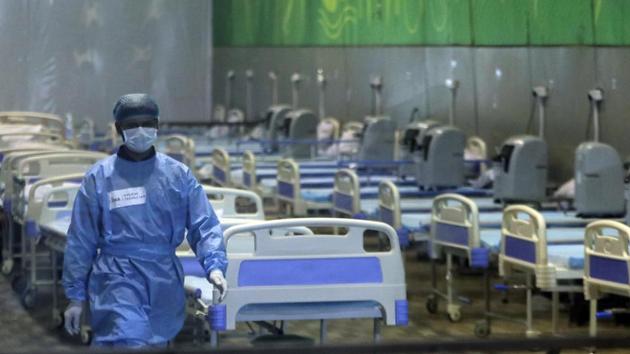Health workers: The soldiers of our times, writes Karan Thapar
At the moment, it’s our doctors and nurses who’ve put themselves in the line of fire to keep the rest of us safe and alive. Reports suggest 87,000 health care workers have been infected and 573 have died.
Charles Dickens wrote A Tale of Two Cities but I’m less ambitious. I shall restrict myself to two warriors. They’re both in the news and they’re equally critical to our survival. Yet, on one we heap adulation. The other we take for granted.

The first are our soldiers. We’ve placed them on a pedestal and look up to them as heroes. There’s nothing they can do wrong even when they actually have. Their faults are brushed under the carpet — ignored by the media and rarely discussed by the rest of us. When they err, we’re only too ready to forgive. We see them as valorous, unselfish, patriotic and better.
We use the term martyrs when they die without realising how incorrect it is. Forget its religious overtones, what’s more inappropriate is martyrs want to die. They embrace death. Soldiers definitely do not. They want to live. They have wives and children, mothers and fathers, sisters and brothers waiting for them. It’s this world they want to be a part of, not that of the angels and spirits.
The other set of warriors are doctors, nurses and health care workers. No doubt we’ve coined the term Covid warriors to refer to them, but it’s used very differently. We don’t see them as heroes, we don’t look up to them and rarely do we praise them. We only remember them when we’re sick. The rest of the time, they fade into the background.
Yet, at the moment, it’s our doctors and nurses who’ve put themselves in the line of fire to keep the rest of us safe and alive. Unless there’s a war, they face greater danger than any soldier in uniform. Every time they tend to a patient, they risk infection. Reports suggest 87,000 health care workers have been infected and 573 have died.
There’s one further point that probably doesn’t occur to most of us. I’m grateful to Dr Saleem Naik for drawing my attention to it. When a soldier fights a war, it’s his own life that’s at risk. When doctors, nurses and health care staff assist Covid-19 patients, they risk bringing the infection home to their parents, wives and children. As Dr Naik puts it: “The enemy’s bullet doesn’t enter the soldier’s household.” On the other hand, the threat of infection from Covid isn’t restricted to hospitals.
I know some state governments have announced lump sums when doctors and nurses die. However, the amount pales in comparison to what a dead soldier’s family can receive. His casket will return draped in the tricolour, his funeral is broadcast on television and a grateful nation will honour him with medals and citations. In due course, Bollywood will romanticise his memory.
Nothing of the sort happens when a doctor or a nurse falls victim to Covid-19. There are no 21-gun salutes, no politicians to praise their work, no television anchors to sing the chorus.
Now consider how society’s attitude makes the difference feel worse. Foolish gated communities and thoughtless resident’s welfare associations have tried to shut their doors on doctors and nurses for fear their presence could spread Covid-19. We stigmatise them, at times treat them like untouchables.
Even when we chose to honour them, we did so more by farce than meaningfully. Army bands played outside hospitals whilst air force planes scattered rose petals. This may have been spectacle, but it lacked substance. To me, it seemed devoid of sincerity.
If we really mean what we say when we call them warriors, let the Army line up when they die and let our ministers be present at their funerals. Let television tell their sad stories with the same tireless dedication with which it speaks of soldiers killed in action.
As an Army officer’s son, I want to frankly say I despair of a society that values its soldiers more than its doctors and nurses. Perhaps that’s because of our insecurity. In that case, it could be understandable.
But if it reflects our values, it’s more than inexplicable. It feels wrong.




